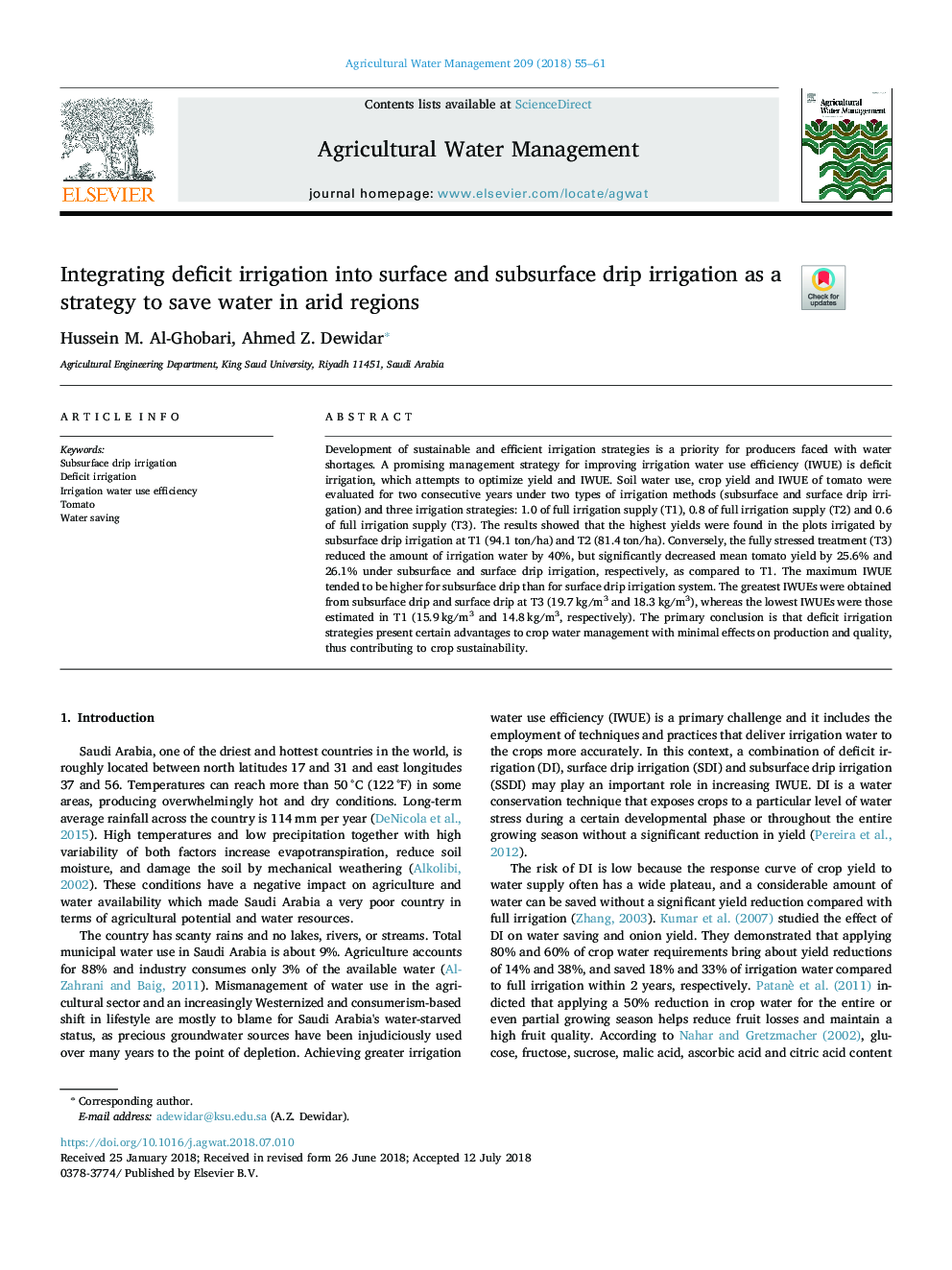| Article ID | Journal | Published Year | Pages | File Type |
|---|---|---|---|---|
| 8872735 | Agricultural Water Management | 2018 | 7 Pages |
Abstract
Development of sustainable and efficient irrigation strategies is a priority for producers faced with water shortages. A promising management strategy for improving irrigation water use efficiency (IWUE) is deficit irrigation, which attempts to optimize yield and IWUE. Soil water use, crop yield and IWUE of tomato were evaluated for two consecutive years under two types of irrigation methods (subsurface and surface drip irrigation) and three irrigation strategies: 1.0 of full irrigation supply (T1), 0.8 of full irrigation supply (T2) and 0.6 of full irrigation supply (T3). The results showed that the highest yields were found in the plots irrigated by subsurface drip irrigation at T1 (94.1âton/ha) and T2 (81.4âton/ha). Conversely, the fully stressed treatment (T3) reduced the amount of irrigation water by 40%, but significantly decreased mean tomato yield by 25.6% and 26.1% under subsurface and surface drip irrigation, respectively, as compared to T1. The maximum IWUE tended to be higher for subsurface drip than for surface drip irrigation system. The greatest IWUEs were obtained from subsurface drip and surface drip at T3 (19.7âkg/m3 and 18.3âkg/m3), whereas the lowest IWUEs were those estimated in T1 (15.9âkg/m3 and 14.8âkg/m3, respectively). The primary conclusion is that deficit irrigation strategies present certain advantages to crop water management with minimal effects on production and quality, thus contributing to crop sustainability.
Keywords
Related Topics
Life Sciences
Agricultural and Biological Sciences
Agronomy and Crop Science
Authors
Hussein M. Al-Ghobari, Ahmed Z. Dewidar,
